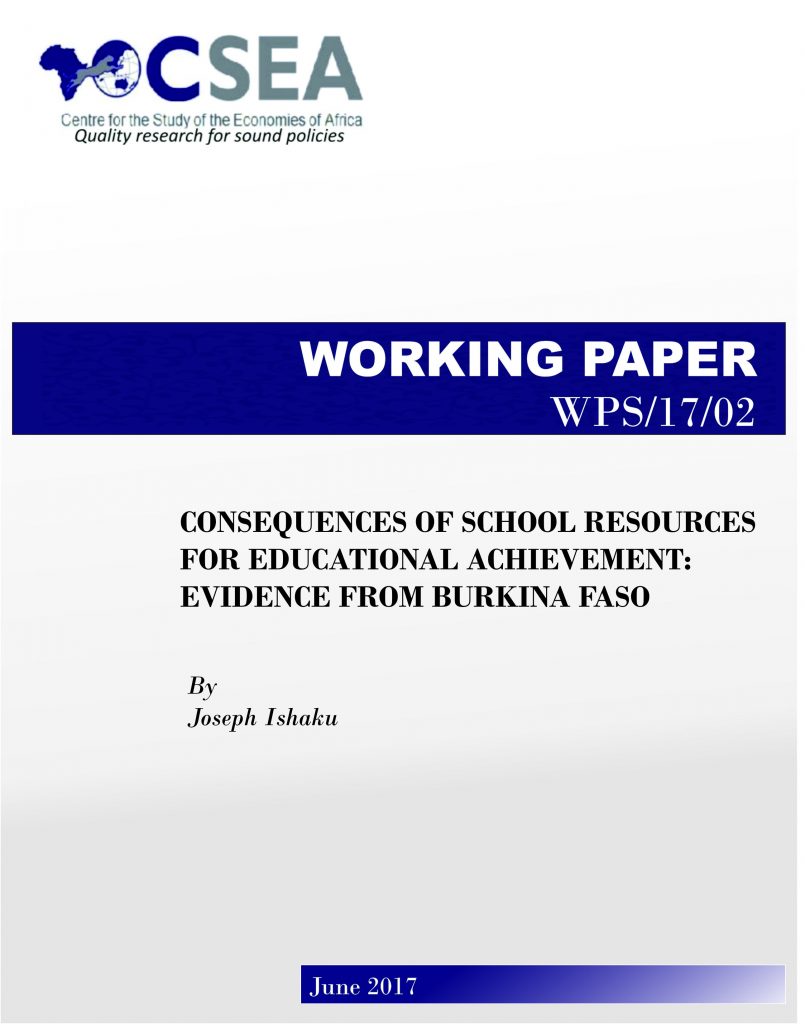Publications

July 7, 2017
Consequences Of School Resources For Educational Achievement
This paper examines the
determinants of educational achievement in a developing country context,
Burkina Faso. We deviate from the extant literature by constructing an
aggregate index of school quality from the observable school resources. Also, we
account for school choice constraints, faced by children especially in rural
areas, as it relates to the geographical inequalities in the distribution of
quality schools. These treatments provide an unbiased estimates of the
relevance of school resources for academic performance. The empirical approach
is based on a two-stage procedure that accounts for supply constraints in
school choice.
Related
Nigeria Economic Update (Issue 35)
Recent report in the media highlights that Nigerias
GDP has dropped to $296 billion in 2016, in contrast to the $481 billion
recorded in 20151 and Nigeria has lost its position as Africas
largest economy to South Africa. This conclusion was based on the computation
of GDP with current naira-dollar exchange rate. However, while the naira has
significantly lost its official value since the adoption of a flexible exchange
rate, estimating GDP merely with a single exchange rate figure (rather than its
yearly average) cannot be regarded as an appropriate method to conclude on Africas
largest economy.
Nigeria Economic Update (Issue 33)
Available
reports from the Nigerian National Petroleum Corporation(NNPC), suggests a
significant reduction in the cost incurred to produce one barrel of crude oil for
the past two years. Specifically, the cost of production reduced by 71 percent
from $78 as at August 2015, to $23 per barrel as at August 2017.
This may be attributable to moderations in operational expenditures, following
repairs and restructuring in the oil region.
